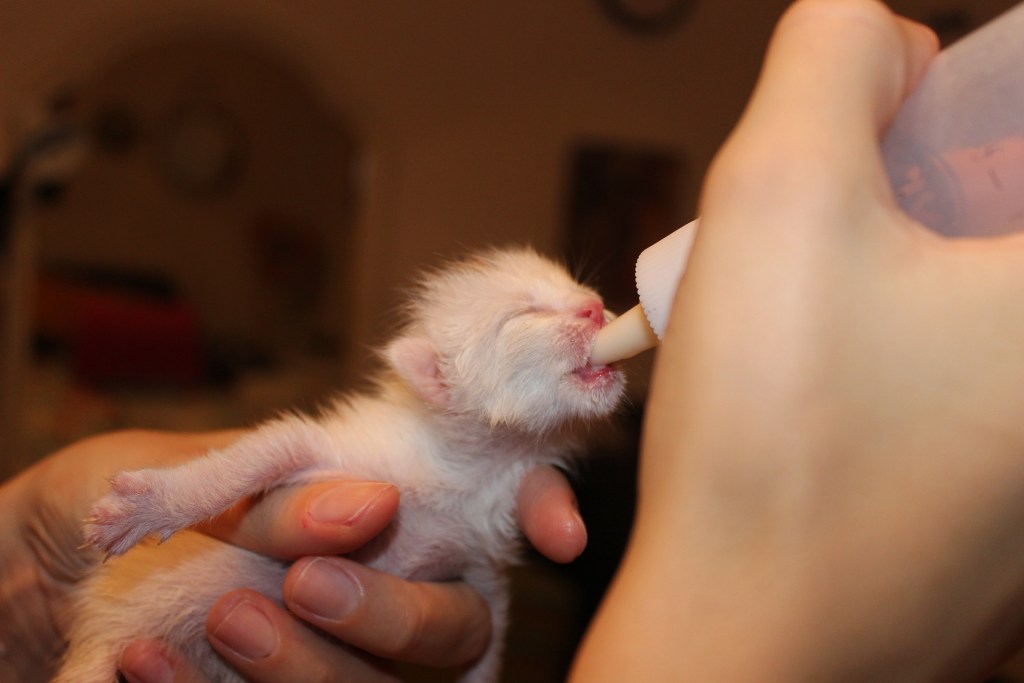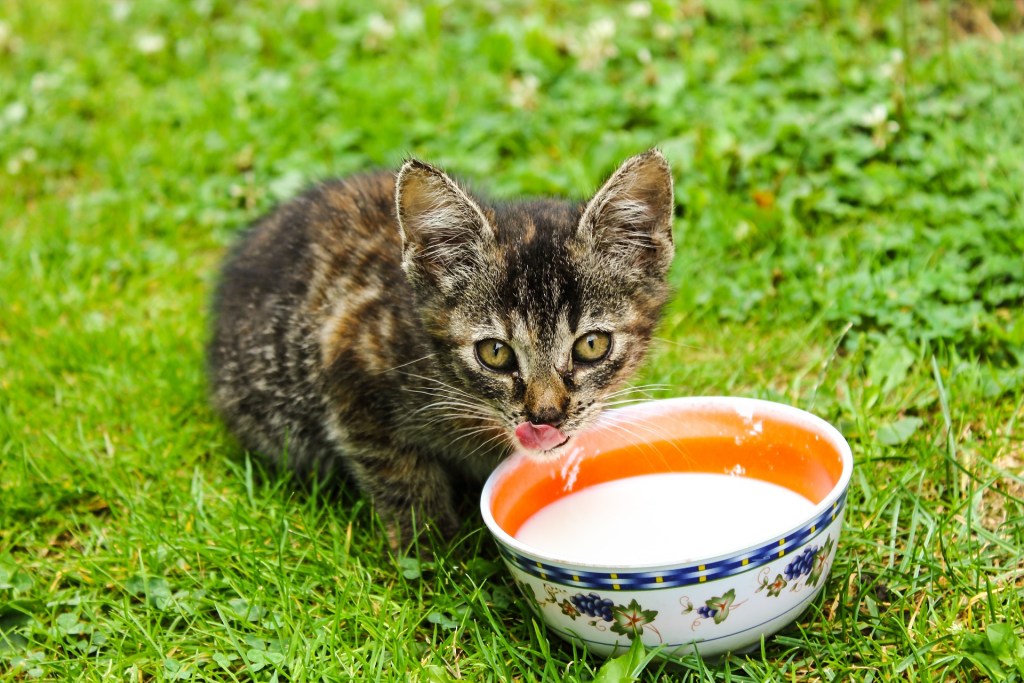We’ve all seen pictures of kitties gathered around a saucer of milk. You may have even heard that milk is a great treat for cats or that cats need milk to be healthy and strong. While it’s true that kittens need milk from their mother to grow, milk might not be a good option for an adult cat. Whether you want to support your cat’s health or give your cat a treat, it’s important to understand how milk affects your cat’s digestion. So, is milk bad for cats? Giving cats cow’s milk might be a popular custom, but that doesn’t mean it’s the best choice for your cat.

Is milk bad for cats?
Some cats aren’t able to digest lactose, which is a sugar found in dairy products. Kittens have an enzyme called lactase, which allows them to digest their mother’s milk when they’re young. However, as kittens grow, their bodies produce less lactase, and eventually they can no longer digest lactose.
When cats can’t digest lactose, it lingers in their intestines. There it can cause all sorts of unpleasant symptoms like diarrhea, vomiting, abdominal pain, and even weight loss and a diminished appetite.
What’s more, cow’s milk really isn’t good for cats, even if they can digest it. Cats don’t have any nutritional need for cow’s milk, and it’s also highly fatty. In fact, it’s more nutritionally harmful than helpful.
Is dairy bad for cats?
Some dairy products are bad for cats, but others might not be a problem. According to Pet MD, dairy products like milk are problematic because of their high lactose content, but other dairy foods like cheese aren’t as bad, particularly if you feed your cat a little at a time. Using a bit of cheese to conceal a pill may be just fine, but be sure to monitor your cat for signs of digestive upset.
You can also give your cat a little taste of ice cream as a treat, but remember that it’s not ideal. Ice cream contains sugar, which isn’t great for your cat. If you do offer your cat ice cream, avoid a sugar-free option, since many artificial sweeteners are toxic to cats.
What should cats drink instead of milk?
Adult cats have no nutritional need for milk, so there’s no reason to offer it to your cat. Instead, you can help your cat to stay healthy by ensuring he drinks plenty of water. Place water dishes throughout the home, so water is always nearby. Be sure to clean these water dishes thoroughly and frequently to avoid bacteria buildup and to keep the water tasting good.
If your cat isn’t wild about water, you may be able to pique his interest by giving him access to a pet water fountain. Water fountains provide continuous running water, which is intriguing to cats. Just as your cat is fascinated by the water dripping from the tap, he may find the water fountain enticing. As a benefit, most fountains continuously filter their water, so your cat has plenty of clean water to drink.

What can you feed your cat instead of dairy?
Dairy treats every now and again are okay, but better options are available. Ready-made cat treats are designed to be easy for your cat to digest. If you want a healthy treat, look for freeze-dried fish or chicken that’s free of preservatives and other additives. You also can give your cat a bit of cooked chicken or turkey, as long as it’s prepared without spices or oils and is free of bones.
It might be tempting to give your cat a saucer of milk every now and again, but this is a custom that really isn’t helping your cat. If your cat is one of the many who can’t tolerate lactose, you could be contributing to digestive upset. A safer option is to choose a ready-made cat treat or to pamper your cat in other ways, such as by giving him a new cat bed or splurging on a fun cat toy. Cats may find milk tasty, but you’ll be keeping your cat healthier by giving him an alternative treat.


